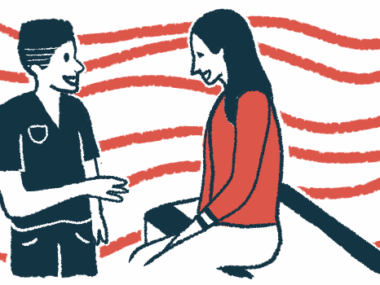aHUS Alliance Seeks Input from Ultomiris-treated Patients
Written by |

To help persuade decision-making entities to make the atypical hemolytic uremic syndrome (aHUS) treatment Ultomiris (ravulizumab) available in countries with socially funded healthcare, aHUS Alliance Global Action is asking patients and caregivers worldwide to contribute their experience with the therapy.
The organization is seeking input about the benefits and any downsides to Ultomiris use, particularly when compared to an older aHUS therapy, Soliris (eculizumab). The perspectives may be included anonymously in a forthcoming aHUS alliance report, which will offer a picture of Ultomiris treatment in patients’ own words.
Patients — or caregivers — will be asked a few questions about their experience. Those who wish to participate should write to [email protected] for more information. Submissions are needed by Sept. 6.
“This is the first time that this kind of call to action has been tried, but it may be a testament to the strength of the global aHUS community that it can provide a specific patient voice when needed,” the aHUS Alliance stated in an article on its website.
The organization wishes to hear from patients who have: transitioned from Soliris to Ultomiris after long-term use; transitioned to the therapy after an initial three months of Soliris protocol; or used Ultomiris only.
Ultomiris is an antibody designed to bind and inhibit the activity of the complement C5 protein. It prevents over-activation of the complement system, a set of more than 20 blood proteins that form part of the body’s immune system, and the destruction of red blood cells associated with aHUS.
Developed by Alexion Pharmaceuticals, Ultomiris was approved in the U.S. in October for the treatment of adults as well as children 1 month and older with aHUS. The European Commission also recently approved the therapy for adults and children weighing at least 10 kilograms (22 pounds).
When a new medicine is approved in countries such as the U.S., private insurance companies usually must decide whether to cover it. In the process, the treatment’s manufacturer may meet with insurance companies to discuss how the therapy works, and to explain its costs and benefits.
However, in countries with socially funded healthcare, a committee or other governmental entity usually decides whether a new treatment will be funded. Such decisions often are informed by patient input about the new medicine. Usually, such input is facilitated by patient advocacy organizations, according to each country’s protocol.
The problem, according to the aHUS Alliance, is a lack of public feedback from patients who are taking Ultomiris. “There is no evidence available anywhere about what patients think about ravulizumab, and certainly nothing in the public domain from those with experience of both eculizumab and ravulizumab, and the transition from one to another,” the organization stated.
That’s why the alliance is gathering patient and caregiver testimonials to produce a final report on the advantages and disadvantages of Ultomiris compared with Alexion’s older complement system inhibitor, Soliris. Their experiences are expected to help decision-making entities provide funding for Ultomiris in countries where the treatment is approved.





